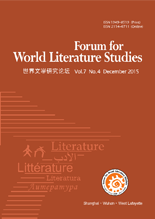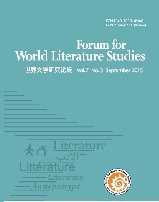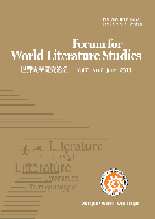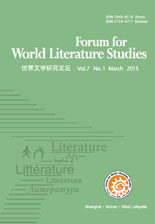CALL FOR PAPERS China and the Changing Geopolitics of Global Communication Date: 9 April 2016 Time: 9:00am-5.00pm Location: 35 Marylebone Road, London, NW1 5LS
Conference organised by:
China Media Centre, University of Westminster
Managing Department of Social Sciences, Communication University of
China
Faculty of International Media, Communication University of China
Featured Speakers:
• Kerry Brown, Director of the Lau China Institute and Professor of
Chinese Studies at King’s College London.
• Jiang Fei, Professor, Chinese Academy of Social Sciences
• Anthony Fung, Professor, the Chinese University of Hong Kong
• Daya Thussu, Professor of International Communication, University of
Westminster
• Qin Yuming, Professor, Communication University of China
• Frank Pieke, Professor, Modern China Studies, University of Leiden,
Netherlands
• Duan Peng, Professor, Communication University of China
• Luo Qing, Professor, Communication University of China
• Hugo de Burgh, Director, China Media Centre, University of
Westminster
The growing global presence of China has impacted on many aspects of life
in the contemporary world, including the geo-politics of global
communication. Since 2006, China has been the largest holder of foreign-
currency reserves, estimated in 2015 to be more than $3.3 trillion. According
to the International Monetary Fund, China’s Gross Domestic Product
surpassed that of the United States in 2014, making it the world’s largest
economy in purchasing-power parity terms, while its currency, the Renminbi,
was admitted by the IMF into its reserve currencies basket in 2015, joining
the club of the world’s other four elite currencies: Dollar, Euro, Pound and
Yen.
As part of China’s ‘going out’ strategy, $7 billion has been earmarked for
external communication, including the expansion of Chinese broadcasting
networks such as CCTV News. In the cyber world too, China has
demonstrated extraordinary growth: in 2015, half of China’s 1.3 billion people
were online, making it home to the world’s largest number of internet users,
and three of the top ten internet-based companies were Chinese.
China is now one of the biggest aid donors and a driving force behind
BRICS, the group of large non-Western nations (Brazil, Russia, India, China
and South Africa) which has established a BRICS Bank to fund
developmental projects. China has also set up the Asian Infrastructure
Investment Bank and its recent initiative of ‘One Belt, One Road’, reviving the
historical legacies of the land and maritime silk routes, encompasses more
than 100 countries in Asia, Africa and Europe. These projects, potentially
rivalling the Western-dominated Bretton Woods institutions, such as the
World Bank and the IMF, raise interesting possibilities in relation to geo-
political and global governance issues.
While US conglomerates continue to dominate the global media landscape,
including digital media, other major non-Western powers, notably China,
have emerged onto the global scene, complicating discourses of media,
development, geo-politics and governance. This phenomenon of Chinese
media globalization and its impact on global communication has so far
largely escaped academic scrutiny, partly because the focus of much
international scholarship has been on the issue of censorship and media
regulation in China.
This pioneering conference assesses the impact of the ‘peaceful rise of
China’ on the geo-political environment and poses questions about its effect
on global communication. While recognizing the limitations of a media
system that operates within a one-party state with its attendant regulatory
and control mechanisms, there is ample scope to evaluate how Sino-
globalization is contributing to enriching the political, cultural and economic
discourses globally. Will the growing globalization of China help redress the
imbalance in media flows and thus contribute to a pluralistic media globe?
We welcome contributions covering a wide-range of topics within the field of
global communication, including, but not restricted to:
• China’s media in Africa
• The soft power of culture
• Constructive vs. critical journalism
• Internet governance
• Building communication infrastructure
• Cyber-capitalism with Chinese characteristics
• Diaspora and geo-politics
• China and development communication
• BRICS and global communication
• Contesting news agendas
• Cyber war and security
Registration fee
The fee for registration for all participants, including presenters, will be £100,
with a concessionary rate of £50 for students, to cover all conference
documentation, refreshments and administration costs.
Deadline for abstracts
Abstracts of 200 words (maximum) should be submitted no later than 31
January 2016. Decision on acceptance will be notified to applicants via email
by end of January 2016. Abstracts should be accompanied by the contact
details of the presenter(s) and sent to: Alja Kranjec
([email protected]) and Xiao Han ([email protected])
Publication
A selection of the papers will be published in Global Media and China – a
newly launched SAGE journal – which will dedicate a 2017 special issue to
the conference theme.
China Media Centre, University of Westminster
Managing Department of Social Sciences, Communication University of
China
Faculty of International Media, Communication University of China
Featured Speakers:
• Kerry Brown, Director of the Lau China Institute and Professor of
Chinese Studies at King’s College London.
• Jiang Fei, Professor, Chinese Academy of Social Sciences
• Anthony Fung, Professor, the Chinese University of Hong Kong
• Daya Thussu, Professor of International Communication, University of
Westminster
• Qin Yuming, Professor, Communication University of China
• Frank Pieke, Professor, Modern China Studies, University of Leiden,
Netherlands
• Duan Peng, Professor, Communication University of China
• Luo Qing, Professor, Communication University of China
• Hugo de Burgh, Director, China Media Centre, University of
Westminster
The growing global presence of China has impacted on many aspects of life
in the contemporary world, including the geo-politics of global
communication. Since 2006, China has been the largest holder of foreign-
currency reserves, estimated in 2015 to be more than $3.3 trillion. According
to the International Monetary Fund, China’s Gross Domestic Product
surpassed that of the United States in 2014, making it the world’s largest
economy in purchasing-power parity terms, while its currency, the Renminbi,
was admitted by the IMF into its reserve currencies basket in 2015, joining
the club of the world’s other four elite currencies: Dollar, Euro, Pound and
Yen.
As part of China’s ‘going out’ strategy, $7 billion has been earmarked for
external communication, including the expansion of Chinese broadcasting
networks such as CCTV News. In the cyber world too, China has
demonstrated extraordinary growth: in 2015, half of China’s 1.3 billion people
were online, making it home to the world’s largest number of internet users,
and three of the top ten internet-based companies were Chinese.
China is now one of the biggest aid donors and a driving force behind
BRICS, the group of large non-Western nations (Brazil, Russia, India, China
and South Africa) which has established a BRICS Bank to fund
developmental projects. China has also set up the Asian Infrastructure
Investment Bank and its recent initiative of ‘One Belt, One Road’, reviving the
historical legacies of the land and maritime silk routes, encompasses more
than 100 countries in Asia, Africa and Europe. These projects, potentially
rivalling the Western-dominated Bretton Woods institutions, such as the
World Bank and the IMF, raise interesting possibilities in relation to geo-
political and global governance issues.
While US conglomerates continue to dominate the global media landscape,
including digital media, other major non-Western powers, notably China,
have emerged onto the global scene, complicating discourses of media,
development, geo-politics and governance. This phenomenon of Chinese
media globalization and its impact on global communication has so far
largely escaped academic scrutiny, partly because the focus of much
international scholarship has been on the issue of censorship and media
regulation in China.
This pioneering conference assesses the impact of the ‘peaceful rise of
China’ on the geo-political environment and poses questions about its effect
on global communication. While recognizing the limitations of a media
system that operates within a one-party state with its attendant regulatory
and control mechanisms, there is ample scope to evaluate how Sino-
globalization is contributing to enriching the political, cultural and economic
discourses globally. Will the growing globalization of China help redress the
imbalance in media flows and thus contribute to a pluralistic media globe?
We welcome contributions covering a wide-range of topics within the field of
global communication, including, but not restricted to:
• China’s media in Africa
• The soft power of culture
• Constructive vs. critical journalism
• Internet governance
• Building communication infrastructure
• Cyber-capitalism with Chinese characteristics
• Diaspora and geo-politics
• China and development communication
• BRICS and global communication
• Contesting news agendas
• Cyber war and security
Registration fee
The fee for registration for all participants, including presenters, will be £100,
with a concessionary rate of £50 for students, to cover all conference
documentation, refreshments and administration costs.
Deadline for abstracts
Abstracts of 200 words (maximum) should be submitted no later than 31
January 2016. Decision on acceptance will be notified to applicants via email
by end of January 2016. Abstracts should be accompanied by the contact
details of the presenter(s) and sent to: Alja Kranjec
([email protected]) and Xiao Han ([email protected])
Publication
A selection of the papers will be published in Global Media and China – a
newly launched SAGE journal – which will dedicate a 2017 special issue to
the conference theme.
- Prev:CONfini, CONtatti, CONfronti The PhD programme in Linguistic, literary and intercultural studies in European and extra-European perspectives of the University of Milan is glad to announce the conference CONfini, CONtatti, CONfronti (CONfines, CONtacts, CONtrasts) that will take place at the University of Milan on September 22, 23 and 24, 2016.
- Next:Call for papers NEW EUROPEAN RESEARCH ON CONTEMPORARY CHINA CONFERENCE 3 rd Edition Dates: July 4-6, 2016 Venue: Beijing (Delegation of the European Union to China)
Recommended article:
- Call for papers NEW EUROPEAN RESEARCH ON CONTEMPORARY CHINA CONFERENCE 3 rd Edit
- Sixth Annual Summer Workshop “Studies of Asian Arts, Religion, and History” Na
- CALL FOR PAPERS ICLA 2016
- Call for Papers: The 5th International Symposium on Ethical Literary Criticism
- Call for Papers: International Ibsen Conference “Ibsen and Power”
Column Navigation
NEWS
- CONfini, CONtatti, CONfronti T
- CALL FOR PAPERS China and the
- Call for papers NEW EUROPEAN R
- 聂珍钊教授应邀赴韩国传播文学伦
- 聂珍钊教授应邀赴香港做文学伦理
- Sixth Annual Summer Workshop





